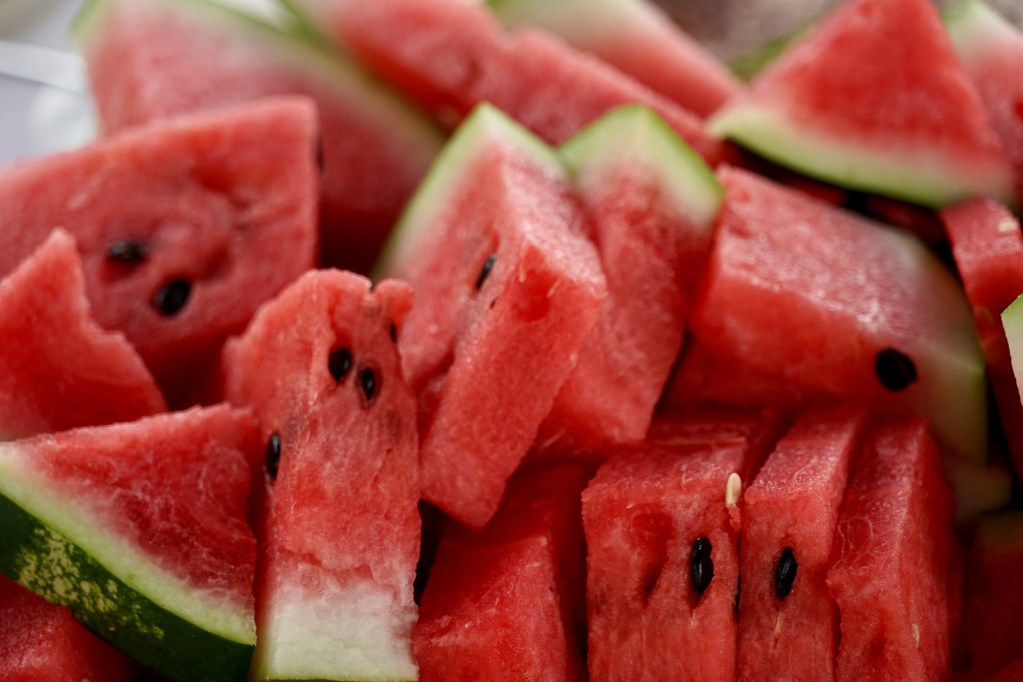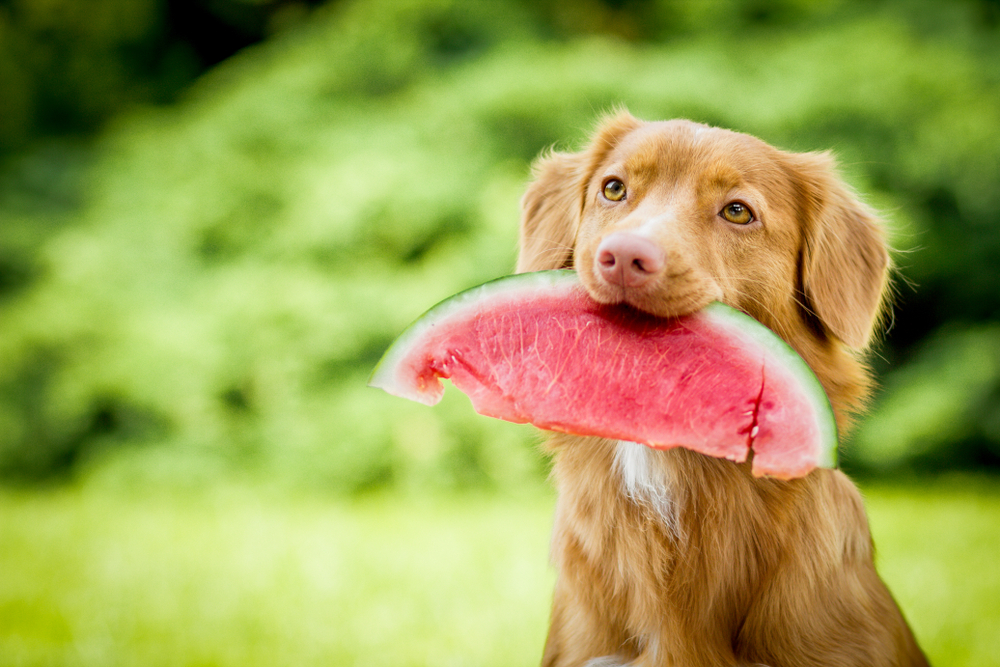
As summertime continues, you might find yourself reaching for a refreshing snack … but you won’t be the only one! Odds are, your dog will also be looking for a way to re-energize, and fresh fruits like berries and melons can be the way to go. Watermelon is such a classic summer treat, so why not try other melons, too?
But can dogs have cantaloupe? What about honeydew? Before you let these questions confuse you, read on to find out everything you need to know about dogs eating melons. Who knows — you just might find your pup’s new favorite treat!
Can dogs have watermelon?

It could come as no surprise to learn that watermelon is safe for dogs. It is mostly water, after all! That means this fruit has great potential to keep your dog cool during the hot summer months, but let’s be honest — there’s no bad time for a slice of watermelon.
As the American Kennel Club (AKC) notes, you should take a few precautions when serving your dog watermelon. Make sure to buy a seedless kind or remove any seeds before giving your pup a bite, as seeds can cause intestinal blockage or irritation, especially in small dogs.
“Seedless melons were developed 50 years ago,” the AKC notes. “They contain no black, mature seeds. But you may see white seed coats, where the seed did not mature.” So that’s what those white pods are! These soft seed coats won’t stay in your dog’s system, causing intestinal blockages, but they may spit them out, regardless.
As for the watermelon rind, it should also be removed. You might think it would be a great chew for your pup, but it can also cause gastrointestinal upset that can lead to vomiting or diarrhea (via Hill’s Pet). And don’t forget to cut the watermelon into small pieces before giving it to your dog.
Is watermelon good for dogs?
Its 92% water content makes this fruit a low-calorie option for almost any pup, notes the AKC, but it does still pack a nutritional punch, too. Watermelon contains vitamins A, B6, C, and potassium, as well as virtually zero cholesterol or fat.
That being said, watermelon shouldn’t be a staple of your dog’s diet. It’s considered a treat at the end of the day and should comprise no more than 10% of your pup’s daily calorie intake. Still, it’s the perfect ingredient for a summertime goodie or a Fourth of July dog treat, especially when blended and frozen.
Can dogs eat cantaloupe?

Just like watermelon, cantaloupe is safe to share with your dog. It is higher in sugar than its water-based cousin, explains Purina, so it’s not ideal for pups with blood sugar or obesity concerns. When in doubt, you can always ask your veterinarian.
You’ll need to prepare this kind of melon, similar to watermelon, before giving some to your dog. Remove the rind and all the seeds, then cut the fruit into bite-sized pieces. This way, you won’t have to worry about your dog choking, either.
Can dogs have honeydew?

In case you haven’t noticed the trend here, honeydew is also A-OK to give to your dog. The same rules apply: Remove all seeds and traces of the rind before serving it to your pup ,and be sure to give your fur baby small pieces.
Alternative ways to prepare melon for dogs

Handing your dog a cube of melon is a great way to help them cool off and snag a snack, but you can also try preparing watermelon, cantaloupe, or honeydew a few different ways to change things up. The easiest thing to do is to freeze bites of melon for a cold, long-lasting treat. Just put them in your dog’s bowl for a mess-free snack.
Additionally, try dehydrating strips of melon in the oven or food dehydrator to create melon jerky. Yes — it really works. Jerky is more chewy than fresh fruit and can last longer, which makes this a great replacement for a bone or rawhide.
For older dogs who don’t have as many teeth, you can blend melon into a dog-safe smoothie so your fur baby doesn’t miss out. The possibilities are endless if you’re willing to get creative, so there’s no time like the present to think outside the box!
Now that you know melon is safe to share with your dog, you can start preparing your summer fruit salad. With so much melon around, you can even let your pup do a little taste testing!



